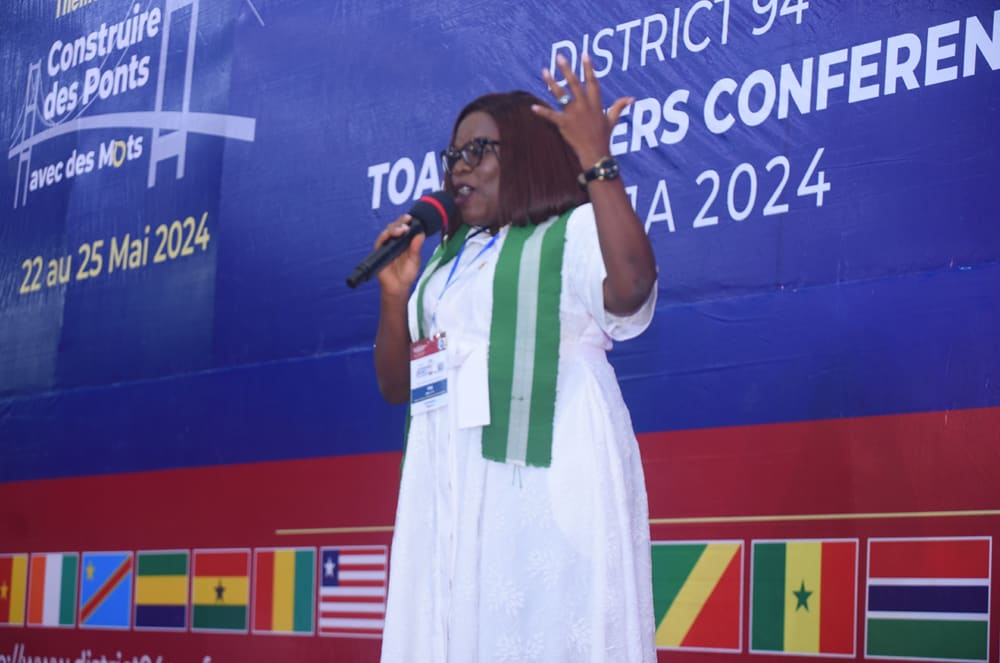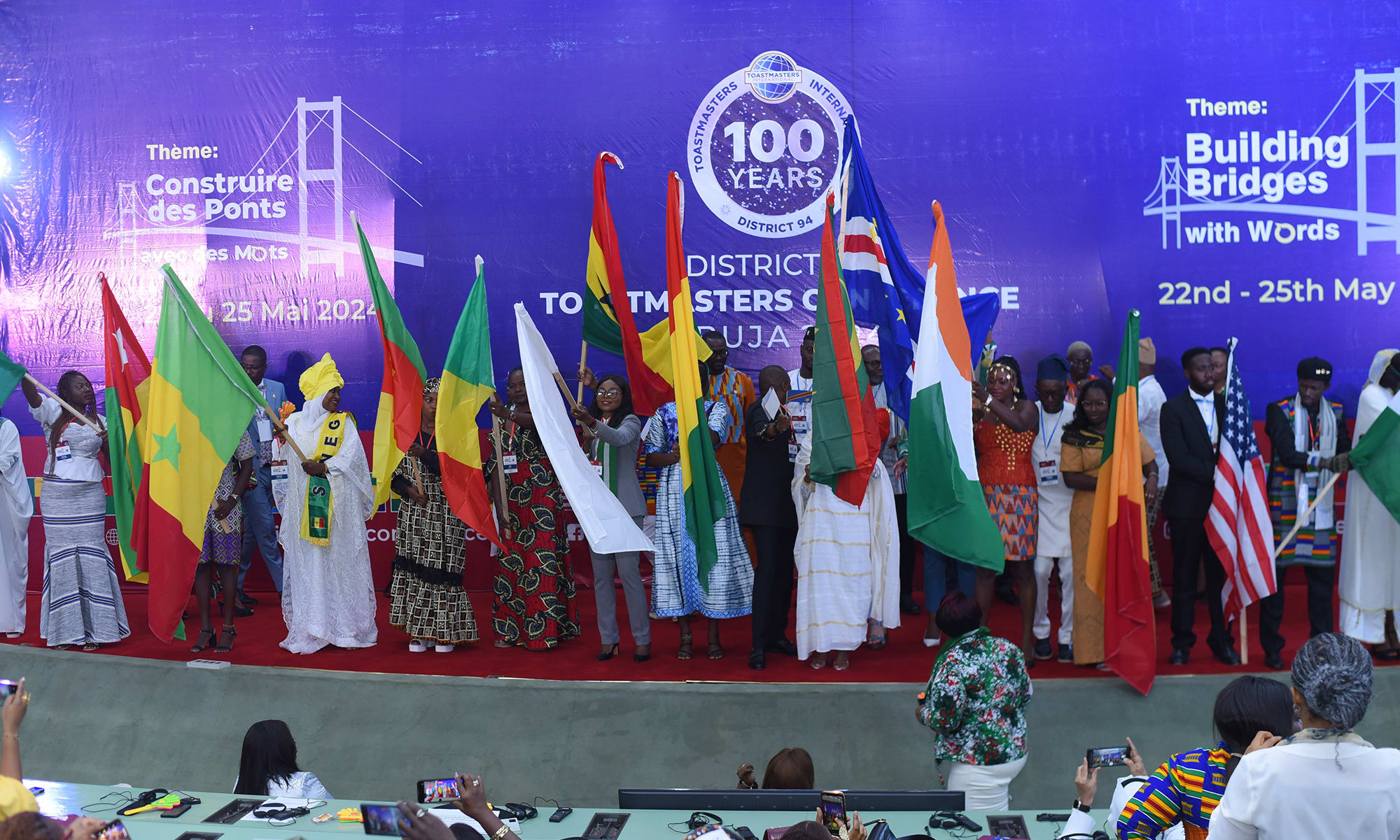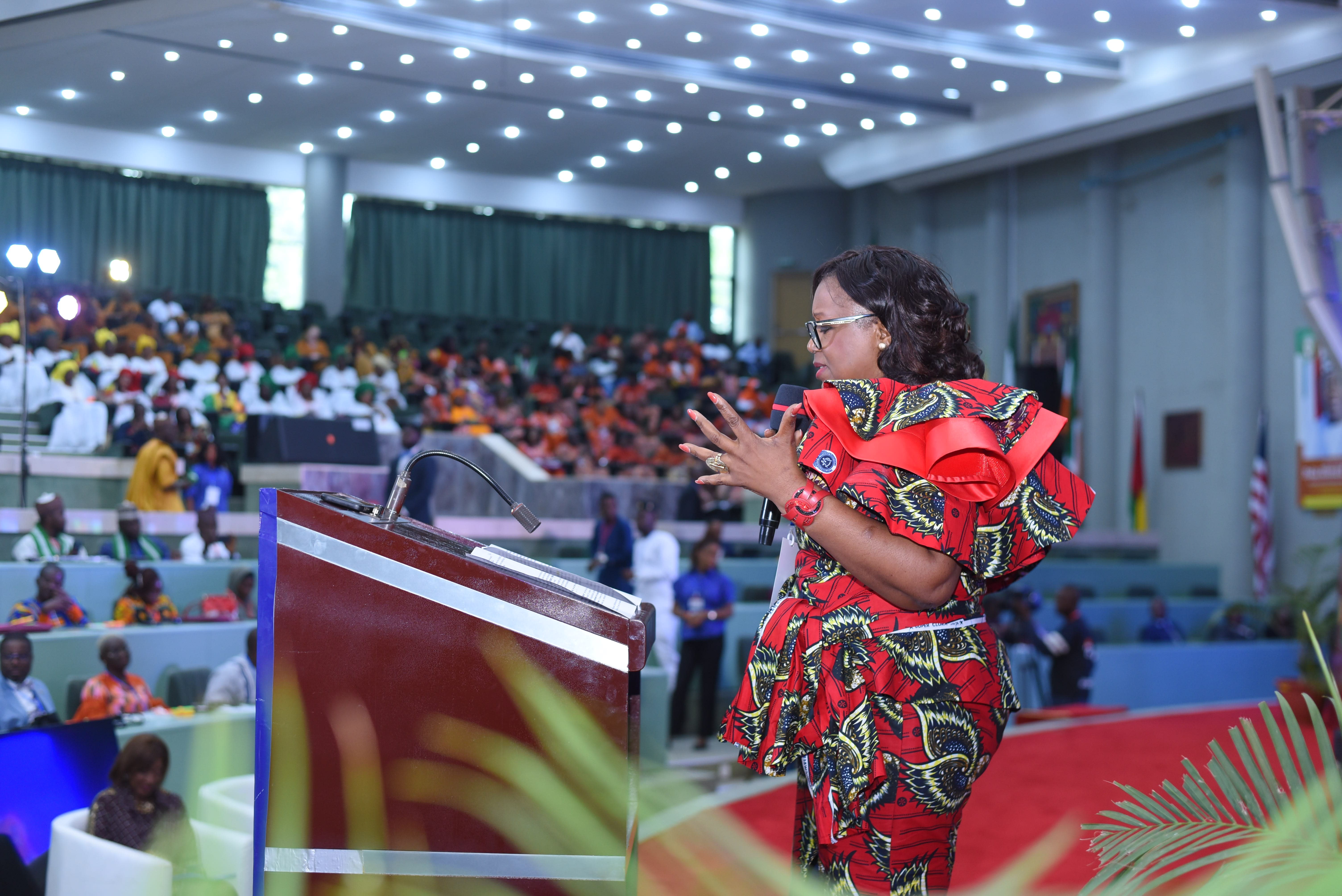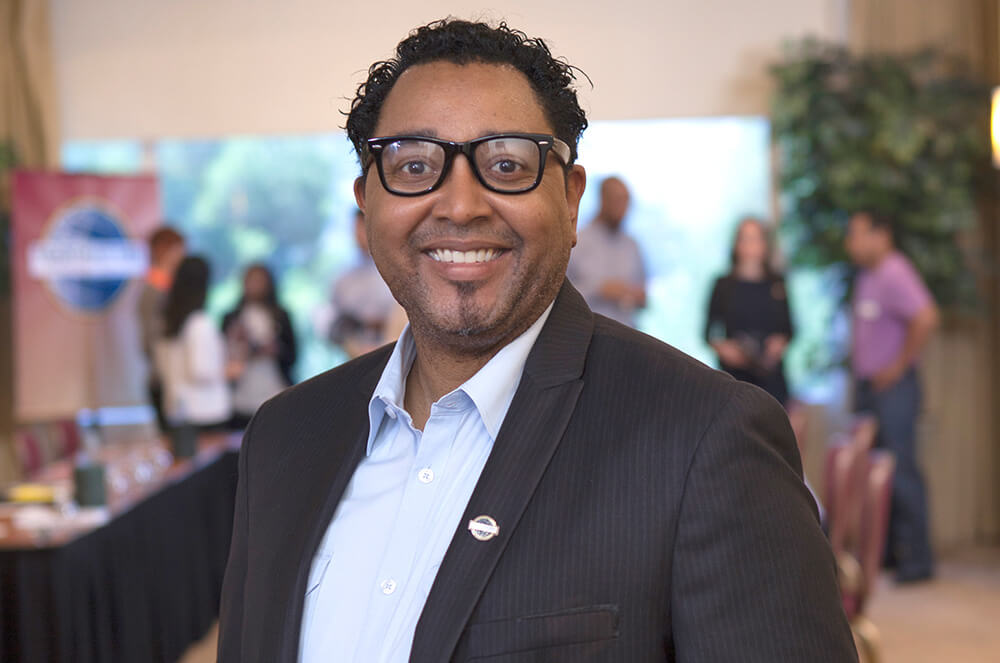
I knew that accepting the role of conference chair for the 2024 District 94 Toastmasters Conference, in Abuja, Nigeria, would be a significant leadership challenge. What I didn't fully grasp was just how transformative the experience would be.
While I have previously chaired two Division-level conferences, and served as a team leader in various organizations over the years, being seen as someone capable of leading such a high-profile event was a surprise, and extremely humbling. I was excited by the opportunity to contribute to the legacy of Toastmasters in Nigeria and in Africa.
At the time, District 94 comprised 24 African countries, and chairing the conference involved leading teams, raising funds, and orchestrating a seamless event—all of which tested every facet of my leadership ability. However, I emerged with six invaluable skills that will enhance my leadership journey going forward.
 Parade of flags at the opening ceremony.
Parade of flags at the opening ceremony.- Strategic Planning
This conference was particularly significant as it marked the final time we convened as a single District before transitioning into two separate ones—a symbol of the growth of Toastmasters in Africa.
We began planning 10 months before the event, which proved to be one of our greatest advantages. It gave us time to anticipate problems, adjust strategies, and overcome challenges as they arose.
A successful conference does not happen by chance; it results from a clear vision and meticulous planning. We adopted the slogan “The Best District Conference Ever,” and this vision was used to guide every decision, from speaker selection to sponsorship acquisition.
We held regular meetings—beginning monthly, then biweekly, and finally weekly—to report on progress and milestones. These sessions, which became almost daily as the conference approached, were invaluable in fostering collaboration, problem solving, and peer support. They allowed me to take proactive steps to anticipate challenges and solve problems before they occurred, to offer realistic solutions, and to have the courage to make quick decisions when necessary. Each time we hit a wall, we navigated our way and charted new strategies without losing focus of the goal. This kept us going, with bigger and better outcomes.
- Team Building
No leader succeeds alone. One of the biggest lessons I learned was how to build, motivate, and delegate to a diverse volunteer team.
From the outset, I carefully mapped out all the committees we would need and appointed capable individuals to lead them. We structured our organizing committee into 13 sub-committees, each with a chair and co-chair.
I learned how people prefer to be led and how to align leadership styles with individual motivations. I became more observant, more thoughtful, and more accommodating. I learned to seek clarity before acting, to celebrate wins no matter how small, and to always highlight team success over individual effort.
At times, I had to uplift people whose motivation was waning, and I learned the importance of listening attentively and responding with empathy, recognizing that effective leadership is as much about listening as it is about strategy.
Trusting my team members to take ownership, maintaining open communication, and recognizing contributions kept everyone engaged and committed to our shared goal. My team's dedication, flexibility, and commitment were the backbone of our success.
This journey taught me how to motivate a team through the highs and lows. I discovered the power of speaking with grace even when I was upset, of standing firm in my decisions, and of maintaining focus despite the distractions around me.
- Budgeting and Fundraising
This was my first time creating a budget of this magnitude. Early on, I had each sub-committee submit their budget, along with their workplan. I then developed a comprehensive budget based on those figures. Having a big-picture understanding of the funds allowed us to align resources with goals and informed our financial strategies from the outset.
Raising funds for a large-scale event was a bold and audacious goal—to make the event a success, we needed to raise more than seven times what the District allotted.
Luckily the fundraising committee was led by two dynamic Toastmasters. I watched them successfully engage with internal and external stakeholders and provided consistent feedback on their efforts.
Working with this committee taught me essential skills not only in budgeting and fundraising, but also in crafting compelling proposals, building relationships with sponsors, and demonstrating the value of investing in our vision.
- Change Management
Leadership is tested in times of crisis, and we faced our share of unexpected challenges—from last-minute speaker changes to logistical hurdles. I learned perseverance and how to not give up when things didn't go as planned.
Our most challenging problem involved international payments. Toastmasters is not a registered entity in Nigeria, meaning we couldn't register on any of the payment gateways, which made it extremely difficult to receive payments from international delegates. To solve the problem, we resorted to a platform that required a higher fee, and I had the responsibility of communicating that decision to the delegates.
Another hurdle was that external sponsorship didn't materialize as expected, so we had to shift our strategy and appeal to our own members for support. This turned out to be one of the best decisions we made. Their generosity and commitment were overwhelming and greatly contributed to the overall success of the conference.
I've always believed that great leaders are defined not by the absence of problems but by their ability to navigate them with resilience. Staying calm, making quick decisions, and rallying my team toward solutions reinforced this idea.
- Emotional Intelligence and Conflict Management
In addition to having 24 countries, our District also comprises French and English speakers. This diversity heightened my cultural sensitivity, and I consciously worked to establish a true feeling of inclusivity.
We established a dedicated liaison committee to facilitate coordination and communication across language lines. This ensured representation and also provided an opportunity for engagement from all parts of the District.
Working with such a diverse group required me to navigate many different personalities and cultural nuances. I grew to recognize everyone's unique perspective, and how their natural strengths shaped their behaviors.
I also tried to establish positive one-on-one relationships with all of the committee chairs, and I would reach out if someone had become unresponsive. Several members confided their struggles, such as conflicts within their teams. One particular conversation not only resolved a problem but also led to a strategic shift that significantly advanced our progress and gave rise to new leadership within the team.
One of the most valuable lessons Toastmasters has taught me is that true leaders face conflict head-on and work to resolve it—something I tried to do as well, either by handling it personally or escalating it to a trusted inner circle of advisers.
Knowing how to respond with emotional maturity became an invaluable leadership asset during heated moments. I learned to stay calm under pressure, manage conflicts constructively, and maintain positive relationships.
- Effective Leadership
Toastmasters has always been a platform for growth, but chairing the District 94 Conference elevated my leadership in ways I never anticipated. Above all, it reshaped my understanding of leadership.
Being a leader isn't about giving directives but about inspiring, serving, and lifting others.
I became better at encouraging others because I, too, was lifted by the encouragement I received. The unexpected phone calls and messages from members are some of my most cherished moments. Those gestures meant the world to me and reminded me that leadership, at its core, is built on connection.
I found that trust is indeed a currency that gains value over time. Even in moments of financial uncertainty, the trust and encouragement from my team—and from the District leadership and members throughout Nigeria—helped me push forward. Being surrounded by positive, success-oriented people proved instrumental.
I didn't expect being the chair of a District conference to be a walk in the park. However, it challenged and transformed me. I emerged from this journey with greater confidence, resilience, and a deeper appreciation for the impact of effective leadership.
I now move forward with the conviction that leadership is not just about what we accomplish; it is about who we become in the process.
Toastmasters provides the opportunity to practice leadership at a high level. When I said yes to the position, I wasn't sure if I could do it. But I grew, I learned, and I surprised myself with what I was capable of. I found strength I didn't know I had. I look back with pride and deep gratitude for the lessons I learned, the people I met, and the leader I've become.
 Then-District 94 Director, Nadine Mbikina, DTM, delivers the welcome address.
Then-District 94 Director, Nadine Mbikina, DTM, delivers the welcome address.I've always believed that great leaders are defined not by the absence of problems but by their ability to navigate them with resilience.
Titi Ojo, DTM is a public speaker, business consultant, management consultant, and project management professional. She joined Toastmasters in 2010 and was a charter member of Unity Toastmasters Club in Abuja, Nigeria. To learn more, visit titiojo.com.
Related Articles

Leadership
The Area Director

Leadership
Leadership Is About Behavior, Not Titles

Leadership



 Previous
Previous

 Previous Article
Previous Article